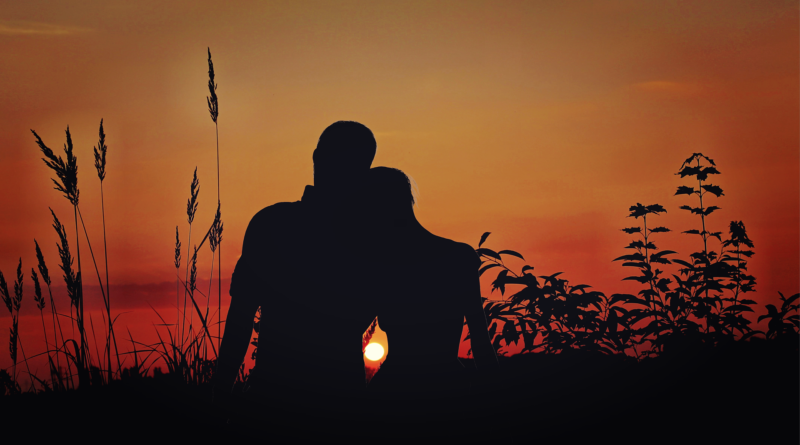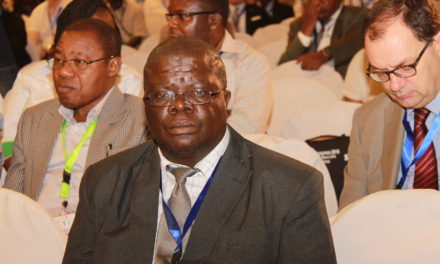
We are abused by our women, Kenyan men cry

By Tebby Otieno
In one of the informal settlements of Nairobi’s metropolitans Kawangware, is a man whose efforts are employed in transporting luggage for people from one area to the other. On a sunny afternoon he is in his vest while on a rainy day, he is in his T-shirt, he never puts on warm clothes because his job always makes him sweat, this is his source of income that puts food on his table and pay other bills.
I met him in Kawangware stage 2 area when the sun was up, seated on one side of his cart commonly known by locals as mkokoteni, he identified himself to me as Jack. Out of Jack’s effort lies inner struggles as he narrates
“My wife left out of a small issue related to my work, sometimes I could go to work and get little money, when I tell her that’s what I got, she says it is not enough and sometimes she even used to accuse me of having other women and complaining I was not taking food home. We stayed in marriage for four years but she never used to show me love I am now suffering alone” he said
Jack’s wife left when he was out, according to him, she carried everything that was in the house. He chose not to report
“she went with children and she keeps on asking me for money, men we are suffering. I did not report because when you go there, they will defend your wife. They will not listen to a man; they only listen to women. She used to hate me, abuse me, when I could get home after they have eaten she serves me cold food, calls me stupid I have suffered…no one is defending us, everyone is defending women, we are forced to leave everything to God, He is our defender” he narrates
Jack represents several men suffering in silence, men who probably have never gotten reason to open up to authorities for justice. According to gender based violence Champion in Meru County, Ahmed Yusuf, most men who go through abuse shy off and would instead lie about the ordeal
“Some of the cases we get are women and children, but for men you see them looking depressed but don’t report, you can find someone being beaten by wife and then in public they tell you they had accident like they fell out of a bodaboda” he comments
Gender based violence, GBV is being harsh against a person because of their gender, that means that somebody is being bullied or threatened because either they are a woman or a man or because of their social expectation. Executive Director at Women Empowerment Link, Virginia Nduta says what comes out as aggressive is in simple terms punishment
“When we now look at issues raised around wife/husband, what we call intimate partner relationships, we have wide range of what encompasses gender based violence, so it goes beyond physical violence to psychosocial violence which goes around intimidation, harassment, economic and even sexual violence. GBV is something that persists over time so you’ll find that gender based violence certain actions like a wife serving husband cold food, insulting husband could be as a result of other issues that are ongoing within family units that have been unresolved. So you find that in a family setup a lot of couples or intimate partners are resolving to other ways of revenge as opposed to open communication, so that is how actually GBV starts building up” Explains Nduta.
In every stage of life there are challenges that come with the growth, during this process there is interaction and relationships in between, but still, when people differ, there is that person who will hold back to avoid either emotional or physical violence. In one of my travels, I decided to engage a male taxi driver who was dropping me to Westland in Nairobi. Mwaniki Lernard agreed that we have the conversation after I introduced myself to him. He says once in a while women provoke men. I asked him why Kenyan men keep quiet about this
“The African society brings us up in a way that whenever we are attacked by women, there is always a belief that a man should not speak out, so according to the society we are supposed to be the head and not coward to such. Even in the police stations you find that there are not many cases which have been reported of men being attacked by women but trust me, now especially with the pandemic so many people are suffering, because so many jobs have been lost, so many businesses are down. You find that even the money that you used to get before is not available right now but for women they are usually there when it is convenient for them, so when things get tough they return it in a way that it is a bit arrogant or abusive. Those cases are there but men don’t have the confidence and attitude to speak out. Lately there are so many men who have been attacked by women, some have been harmed, some have been killed so these cases are there were it not they got to that level that there was murder they would not have been reported” Narrates Leonard
Leonard’s comment led me to Kabete police station. A police officer, at gender office here tells me that men who report do not care how public will judge them considering prosecution process
“We have been receiving cases of men being beaten and we have prosecuted some of the cases, after they report, we record statement, we gather evidence we go to scene, you see in every case there has to be witnesses- someone who saw, someone who heard or if it was an assault and maybe an injury has been inflicted there was medication, we go as per the doctor’s summery. This year we have between 10-20 percent GBV cases reported by the male, they are very few and when men come, if he is a husband, then later the wife comes because most of these cases are domestic. You see when you come to report at police station it is like you are making it public because you don’t fear what the public will say because this is a case that will even go to court and at the court it is not a private court, it is an open court where people will listen to what is happening so some of them fear, they don’t want to wash their dirty linens in public.” Explains a police officer in gender office at Kabete Police Station
The National Police Service in conjunction with Jamii Thabiti and Women’s Empowerment Link, have come up with a set of standards to implement Standard Operating Procedures on response and prevention on gender based violence by police officers. The trainings help police officers on how to handle better cases of GBV, this is done by offering trainings to various police officers, working in gender offices at their respective police stations
“Either way, you have to empathize with any gender, you can’t say it is better to handle male or it is better to handle females. What you have to do is empathize with them, know how to handle them, listen to them, give them a listening ear, ensure there is very high confidentiality, ensure if at all wherever they have come from, if maybe they are living in the same house maybe it is a wife who has abused the husband and they live in the same house ensure that man’s safety comes first, maybe for example ask him, does he has anyone whom he can live with at the moment, if not look for a safety house where he can stay for a while as he survives from whatever has been happening as you handle the case” Confirms a police officer in gender office at Parklands Police Station.
Naturally, men have cover of a home while women are assumed to be the picture of love and care. Psychologist Dr. Gladys Mwiti says from a cultural perspective, there will be a lot of shame and then there will be a lot of ego bashing because when a woman abuses a man it means bashing male ego. This in return leads to shame and then other psychological factors with many unanswered questions
“It even gets worse from a man’s perspective if he reports the abuse he goes through. Imagine you’re going to report such a serious thing and guys are having a laughter of their life. Men should report but even before they report they should be asking themselves where did this come from because you may go report and go home more traumatized, the better thing even before they report is arm themselves with understanding, and by understanding you don’t just walk in a police station. So you sort of like to enter a safe place with someone before you go reporting, so you go to the police with understanding because you are going to report expecting them to do something. By the way, every man is better off preventing this from happening because of the outcomes you can’t tell. Many women don’t have the muscles but they have the tongue” says Dr Gladys
Society for years has socialized men in a way that they have more power than women. They grow up knowing they don’t need to cry so even when they are having issues be it emotional, social, economic or whatever kind of issue they are expected to ‘man up’. Fortunately, there are men who feel there is a need for change and this can be achieved by bringing men together and creating a conducive environment for social change. Executive Director at Advocates for Social Change Kenya, formerly known as Men for Gender Equality Now, Phillip Erick Otieno explains
“The reason why we work with men and boys is also to bring to light some of their issues so that they are able to speak up and also to create awareness to them and to sensitize them that they can also talk, they can come out and say when things are not going right. Actually because of patriarchy men still hold key positions in decision making and therefore even in terms of coming up with social norms, they should come up with those norms that also allow everybody to be able to come out and to air their afflictions without fear of being laughed at or being stigmatized based on what they are going through because that always hurt them” he said
He also calls out on men to be free to share that other side of them that is wanting since Kenyan law, applies to anybody whose rights are being infringed on
“The problem we are having as a society is that a lot of times even when men are violated, let’s take an example of when men are violated by women then it becomes very difficult for those men to come out because of the societal expectations and therefore this man will keep quiet but the fact is anybody who is violated be they a man or a woman then their rights have been infringed on and the law needs to take its course. In Kenya we have various laws, if the man is violated sexually then the Sexual Offences Act of 2006 will come into place, if the man undergoes domestic form of violence, physical violence, emotional violence , sociocultural violence-beating, hitting, biting all those kind of things then The Protection Against Domestic Violence Act can also be applied to deal with these cases and remember our laws are not laws that are only used for female or women victims or survivors of violence but it is for both” Concludes Mr Otieno
In June this year, Dan ShieShie Foundation in collaboration with TeleSky, Kenya Healthcare Foundation and Kenya Private Sector Alliance, KEPSA established a toll free line 1196 to assist men facing gender-based violence during the COVID-19 pandemic. Through the number, men who report are linked to counsellors who counsel them without charge. A report released by Gender Based Violence in Kenya 2014, shows that 56.5 percent of men report the gender based violence cases at police stations.




















Recent Comments